A framework of beams and columns in which some bays of frames are infilled with masonry walls that may or may not be mechanically connected to the frame. Due to great stiffness and strength in their planes, infill walls do not allow the beams and columns to bend under horizontal loading, changing the structural performance of the frame. During an earthquake, diagonal compression struts form in the infills so the structure behaves more like a Braced Frame rather than a Moment Frame. Infill walls can be part-height or completely fill the frame.
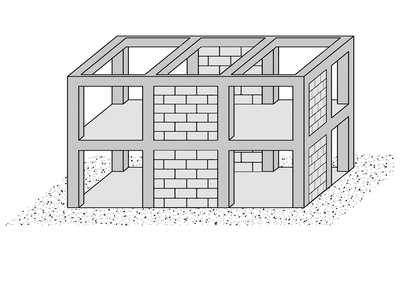
A simplified drawing of an infilled frame structure showing floor slabs supported by beams (adapted from: A. Charleson, Seismic Design for Architects, Architectural Press 2008, p. 64, Fig. 5.2)
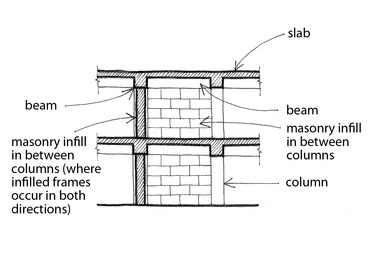
Partial section of an infilled frame structure
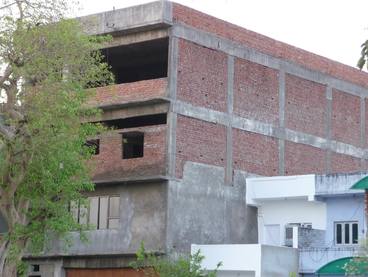
Reinforced concrete frame with brick masonry infill walls, India (A. Charleson)
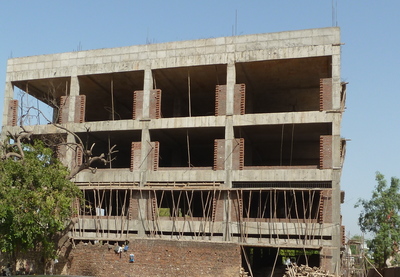
Reinforced concrete frame with brick masonry infills under construction, India (S. Brzev)
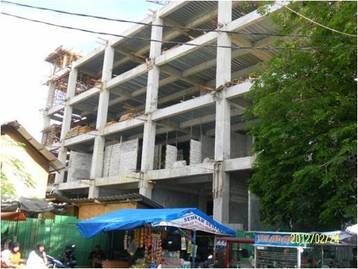
Reinforced concrete frame building with concrete block infill walls, Padang, Indonesia (J. Bothara)
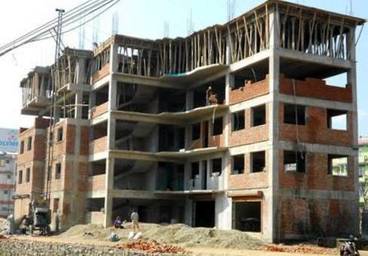
Reinforced concrete frame building with brick infill walls under construction, Kathmandu, Nepal (J. Bothara)
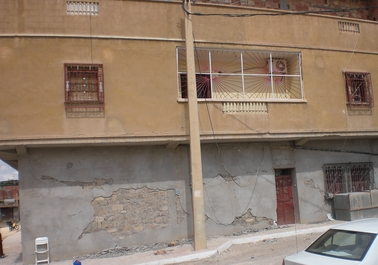
Reinforced concrete frame infilled with stone masonry panels in M'Sila damaged in the 2010 Algeria earthquake (M. Farsi)
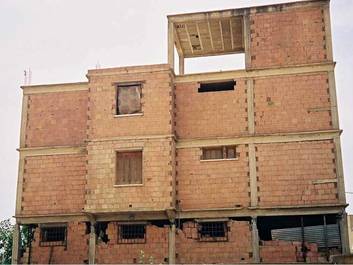
This reinforced concrete frame building with hollow clay tile infills in Algiers was under construction at the time of the 2003 Boumerdes, Algeria earthquake, and it suffered damage at the first storey level (S. Brzev)
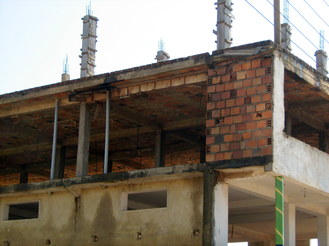
Reinforced concrete frame building with hollow clay block infills, Uganda (E. Lemkuhl)
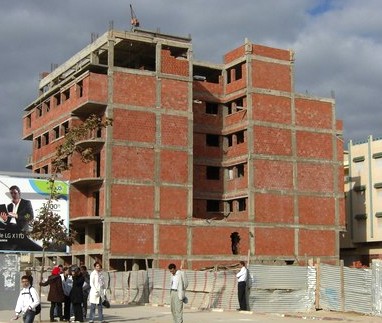
Reinforced concrete frame with masonry infills, Tangier, Morocco (C. Scawthorn)
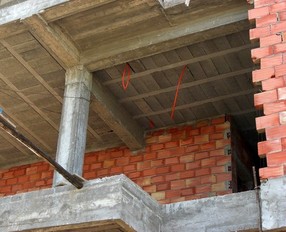
Detail of a reinforced concrete frame with hollow clay tile infill, Rabbat, Morocco (C. Scawthorn)
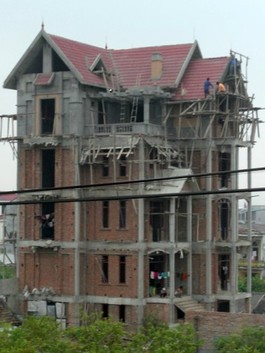
Reinforced concrete frame with masonry infills under construction, Vietnam (C. Scawthorn)


